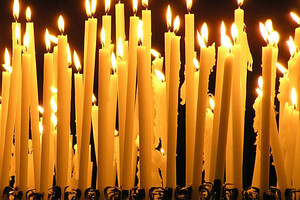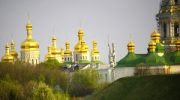Holy Week precedes Easter.

April 18 for Christians of the Eastern rite begins Passion or The big week before Easter . It concludes Lent, and each day of the week before Easter is called “passionate” or “great”, each with its own name and rules of conduct.
Read also: Palm Sunday: what not to do on the holiday
Monday, April 18
This day commemorates the story of how Jesus cursed the fig tree, covered with green leaves, but barren. It immediately withered before the eyes of His companions. Miracle is important for every person: every moment you need to be ready to meet God, so as not to be spiritually empty and barren.
On this day it is customary to clean and wash the house.
this day you can not swear, slander and unclean thoughts. Bread, vegetables, and fruits can be eaten on Holy Monday, but some believers observe a strict fast and spend Monday without food at all.
Singing and dancing on this day is a sin.
Tuesday, April 19
On this day, believers commemorate the parables of the Second Coming of Christ, 10 girls and talents.
On Tuesday, it is customary to complete the darning, washing and ironing of clothes. On this day, not only clothes are prepared for the holiday, but also a tablecloth to cover the holiday table and a towel to go to the Easter service.
On this day, you can eat hot food without oil. They also buy Easter products on Tuesday.
Tuesday is the day of teachings.
Wednesday, April 20
This is the day when Judas betrayed Christ for 30 pieces of silver, and on Holy Wednesday Christians commemorate his betrayal.
Eggs collected or purchased on this day are not considered to spoil for a long time.
Eat without food on this day.
Thursday, April 21
The day was popularly called Maundy Thursday. It is customary to start with an early bath, it is believed that the water on this day acquires healing properties. Bathing and prayer will help to maintain good health for the whole year.
On this day it is customary to bake Easter cakes. Before you prepare the dough, you need to pray. It is believed that otherwise the Easter cake will not work.
It is also customary to take communion on this day, as well as to put bread and consecrated salt on the table.
Traditionally, on Thursday it is customary to buy new items for children. However, it is advisable not to give money, because it reminds of the betrayal of Judas.
Friday, April 22
Good Friday, the harshest day of Holy Week. You can't dance or have fun on this day, you can't listen to music or do anything around the house. It is forbidden to eat in memory of the sufferings of Christ.
There is a saying “he who laughs on Friday will cry all year long.”
An integral part of worship on this day is the Shroud – payment large with the image of the body of Jesus Christ in the coffin. It is forbidden to eat until it is taken out at the evening service. According to legend, Joseph of Arimathea wrapped the body of Jesus Christ after His crucifixion and death in the Shroud of Turin.
Saturday, April 23
Saturday is considered day of rest. This day commemorates the burial of Christ and his victory over death in Hell and entering Paradise.
On this day, they finish painting eggs and collecting the Easter basket. In the evening, the Holy Liturgy is celebrated, followed by the good news of the resurrection of Christ.
Saturday is the last day of Lent.


